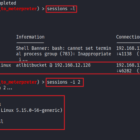Cyber Security for E-Commerce doesn’t depend on the size of the Organization. Even an Organization with a small number of customers can be compromised. For any type of business, the long-term damage to the brand from an E-commerce breach can be challenging for any Organization to recover from.
E-Commerce
E-commerce (electronic commerce) security is a part of Information Security specifically applied to the protection of E-commerce assets from unauthorized access, data security, privacy, and secure online transactions. The rapid evolution of technologies has made the booming in the E-commerce sector. E-Commerce security allows people to buy and sell services and products online with a framework in place that provides security for all the parties involved. Due to the inclusive coverage of geographical areas and ease of accessibility, numerous retail and Businesses migrated to E-commerce.
Significance of Cyber Security for E-Commerce
With more consumers making purchases from the comfort of their homes, it is an important time more than ever to secure businesses against cyber threats. Cyber Security for E-Commerce doesn’t depend on the size of the Organization. Even an Organization with a small number of customers can be compromised. For any type of business, the long-term damage to the brand from an E-commerce breach can be challenging for any Organization to recover from.
According to Fundera research (30 Surprising Small Business Cyber Security Statistics [2021] | Fundera), 60% of small businesses that are victims of a cyber attack go out of business within six months and Cybercrime costs small and medium businesses more than $2.2 million a year.
As Covid 19 pandemic continues to disrupt business operations and impact revenue throughout the industry, many Businesses shift to online retails or e-commerce for the first time. As a result, there are now more data — both in public and private. When the required security features are not implemented on e-commerce sites, both online merchants and customers are at serious risk for payment fraud, phishing, scam, data breaches, and other different major threats. Attackers usually target E-commerce store databases, admins, users, and employees using countless malicious techniques. Due to the rapid rise in the number of consumers, E-commerce sites will always be a juicy target for attackers.
E-Commerce Security Threats
Malware:
Malware is also known as “malicious software”, is a file or code typically distributed over a network, that infects, explores, steals, or conducts virtually any behavior an attacker desire. There are various types of Malwares such as Viruses, Trojans, Worms, Trojans, Rootkits, Remote Administrative Tools (RATs), Botnets, Spyware, Adware, Ransomware and any type of malicious code that infiltrates a computer system.
Malware costs e-commerce Business owners millions in lost revenue every year. Consumers sometimes unintentionally and unsuspectingly download malware on the E-commerce platform through infected extensions, free software bundles, and even by simply using a free, open unsecured public Wi-Fi network.
Online Financial Fraud:
Online Financial fraud is continuously increasing, and alternative payment methods are attracting criminals. An illegal financial transaction can be made on an e-commerce platform by Criminals without the account owner’s knowledge. Some criminals also file requests for fake refunds or returns. Refund fraud is a common financial fraud where businesses refund illegally attained or damaged goods or products.
Various other types of Online Financial threats are Chargeback Fraud, Identity theft, Credit card fraud, Merchant fraud, phishing, vishing, e-skimming. It is vital for businesses to understand and help prevent consumers from this kind of threats to avoid losses in finances, market shares, and reputations.
Distributed Denial of Services (DDOS) Attack:
A distributed denial-of-service (DDoS) attack is a malicious attempt to make an online service unavailable to users often by disrupting the services or network by overwhelming the target or its surrounding infrastructure with a flood of Internet traffic.
NETSCOUT’s ATLAS Security Engineering & Response Team (ASERT) did extensive research on DDOS attacks and observed that more than 10 million DDOS attacks happen in 2020 (Cyber Security & Threat Intelligence Report | NETSCOUT). Many e-commerce websites have incurred losses due to disruptions in their website and overall sales because of DDoS (Distributed Denial of Service) attacks.
Common Web Vulnerabilities:
E-commerce businesses need a specific type of web application to fulfill the requirements of their consumers. Due to the complexity of design, user ease of accessibility, and data it handles, it is often the main target for Criminals. It is recommended to have Security audits on E-commerce websites regularly for Common web vulnerabilities from lists like OWASP top 10 web application security risk (OWASP Top Ten Web Application Security Risks | OWASP) and SANS CWE top 25 (Top 25 Software Errors | SANS Institute).
The benefit of consulting Cyber Security services like WALNUT SECURITY SERVICES is that it helps protect Organizations from such latest threats.
Human Error:
It is often said that Humans represent the weakest link in a security chain. Human error is one of the leading causes of data and security breaches. According to research done by Ponemon Institute on cost on data breach report across based on quantitative analysis of 524 recent breaches across 17 geographies and 17 industries, it is found that 23% of major data breaches are caused by Human Error (Cost of a Data Breach Study | IBM).

How Organizations Should Secure Themselves 24x7x364

SSL Certificates
The main benefit of using SSL Certificates is to encrypt sensitive data shared across the internet. If SSL certificate encryption is absent, any electronic devices between the sender and receiver/server can access sensitive data. The use of HTTPS protocol will enable encryption of exchanged data, data integrity, and authentication for the users. Online shoppers are also becoming familiar with HTTPS and probably not shop on a website that does not have HTTPS.
Implement Security Standards and Compliances
To ensure the safety of both client’s data and customers’ data, it is crucial to follow compliances and standards such as PCI-DSS, ISO, GDPR, HIPAA, etc.
Firewall, Anti-Malware, Anti-Virus
Adding security software like Firewall, Anti-malware, Antiviruses can help protect your asset to some extend but Criminals always have their way to get around any security. Zero-day vulnerabilities are another types of such exploit that can easily penetrate a system’s security while bypassing malware detection.
Educating Employees
To stop errors made through social engineering and to raise awareness of the potential caused by negligence, technology and processes must be combined with employee awareness training. This way, employees are aware of the threats they face on daily basis and the part they are expected to play in guarding against them.
Benefits of Cyber Security Services in E-Commerce
Cyber Security Services provide a wide range of digital protection and will ensure the safety of the e-commerce platform at risk from any potential threats. New types of Cyber Security challenges are developing every minute. The AV-TEST research institute for IT security registers over 350,000 new malicious programs (malware) and potentially unwanted applications every day (Malware Statistics & Trends Report | AV-TEST).
Up till May 2021, there has been a report of 1220.46 million total malware registered which roughly translates to around 300 new malware every minute. The benefit of cyber security services is that through a convenient and effective cyber security service, organizations can get complete insights into the cyber security threats that can damage the business’s assets thereby enhancing a secure environment.
Walnut Security Services can help develop a secure E-commerce platform for the success of your business. Hardening and securing the servers, databases, auditing Web Applications for vulnerabilities and security assessment, authentications, and ensuring the safety of both the client’s and customer’s data are the major benefits of consulting Cyber Security services. Investing more in E-commerce security has become a vital requirement for any online business now.
Better safe than sorry.




